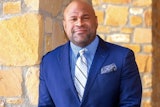The Price of Education
By Julianne Malveaux
I can’t explain my eclectic reading habits, or my innate curiosity about all kinds of things. The combination of the two explains, perhaps, why I snatched Andrew Ward’s book about the Fisk Jubilee Singers off a sale table at a small bookstore, and devoured it on a cross-country flight even as a pending project loomed ahead. I settled into Ward’s book with procrastination on my mind and a smile on my face, and emerged with a renewed appreciation of all the things our ancestors paid for education.
The book, first published in 2000, is entitled Dark Midnight When I Rise: The Story of the Jubilee Singers Who Introduced the World to the Music of Black America (Farrar, Straus and Giroux, 2002). It is a detailed history of the founding of Fisk University and the ways it was funded, including the national and international tours that the Jubilee Singers took to raise funds. These youngsters were true pioneers, suspending their own education so that they could help pay for the education of their peers. Traveling in the latter part of the 19th century, they faced discrimination, horrible conditions and worse, but they kept singing, kept fund raising, kept pushing and prevailing.
The image of the Jubilee Singers is emblazoned on my mind when I meet a friend’s daughter, a young woman ready to go to college. She has a list of the things she needs: A microwave, computer, CD player, you name it. Her greatest concern is that her roommate will bring some of the same things and that their small dorm room will be too crowded to accommodate both their goodies. I am sitting with her and inwardly shaking my head, outwardly trying not to throw cold water on her justifiable self-absorption. I don’t want to come off as one of those ancient troglodytes who harkens back to the good old days even as younger folks tell us that things have changed. But I contrast the struggle so many had simply to eat and to learn with this young sister’s challenge of the microwave and I chuckle. We’ve come a long way, baby.
Not so far, though, when we consider the fallout from the Michigan affirmative action cases. In these cases, we have learned that race can be a factor in admissions, perhaps for another 25 years, but after that Black folks are on their own. In other words, the generations of discrimination are supposed to be overcome in a scant 60-year period in which White folks have been fighting equal access all the way. When access issues are sugarcoated, they’ll bite, but even the Fisk Jubilee Singers, bringing gentle tidings of freedom and liberation, found slammed doors, broken promises and missed opportunities.
I think of the work of the anthropologist Dr. John Ogbu when I read of the Fisk Jubilee Singers. Ogbu, a professor of social cultural anthropology at the University of California, Berkeley, posits that African American achievement is not higher because Black high school students think that excellence is “White.” I wonder if these students, or their parents, have read of the Jubilee Singers, but not just them, of the church ladies that fried chicken and baked pound cake to make sure that some of the church-sponsored historically Black colleges and universities had enough money to operate. I wonder if these students, or their parents, are familiar with the phenomenal effort that people like Bennett College president Dr. Johnnetta Cole puts forward when she struggles to place that campus on sound financial footing. I wonder how anybody can equate White with excellence, especially if White excellence implicitly means anything about Black people. We have a history of excellence and triumph over adversity, and this is part of the Jubilee Singers’ story. Why has it escaped our history?
Black folks have always paid a high price for education. The personal sacrifice of the Jubilee Singers is but one historical example. There are tens of thousands of examples of African Americans who struggled for education both for themselves and for others, folks like the Little Rock Nine who agreed to face the worst racist virulence to integrate a school. There are those who will read this and say, “that was then, this is now.” But some Black folks are paying a high price to make sure our community is educated now.
Think of all the folks who spent time, effort, energy and money fighting the attacks on affirmative action. Some were lawyers and policy leaders, but many of them were students. They were paying the price to secure education for other African Americans, paying the price to ensure inclusion, just as the Fisk Jubilee Singers did. How do we reconcile their passion and commitment with the Ogbu findings that educational excellence is “White”? I think that we partly challenge the Ogbu methodology, and we also partly examine issues of cultural transmission around education and excellence.
As a new semester starts, we might all reflect on the sacrifice made by the Fisk Jubilee Singers, and the price that so many have paid to ensure African American access to higher education. Few regret paying the price, but we squander the gift if its cost is not acknowledged and appreciated.
© Copyright 2005 by DiverseEducation.com















